senior fellows

Jon Allen
Born in Winnipeg in 1950, Jon Allen (LL.B., University of Western Ontario, 1976; LL.M., International Law, University of London School of Economics, 1977) joined the then Department of External Affairs in 1981.
In addition to postings abroad in Mexico City (1983-85), New Delhi (1989-92) and Washington (1997-2001), Mr. Allen held the positions of Director General, North America Bureau (2001-2004), Minister (Political Affairs) at the Embassy of Canada in Washington (2004-2006) and Assistant Deputy Minister, Americas (2010-2012).
From 2006 to 2010, he was Ambassador of Canada to Israel. From 2012 to 2016 he was Ambassador of Canada to Spain and Andorra. From December 2012 to July 2014, he was Chargé d’affaires to the Holy See.
Mr. Allen is currently a Senior Fellow at the Munk School of Global Affairs and Public Policy at the University of Toronto; a Senior Fellow at Glendon College, York University; and a Distinguished Fellow of the Canada International Council.
He is married to Clara Hirsch. They have two sons, Jake and AJ and two precious grandchildren, Olive and Micah.
Thomas S. Axworthy
Thomas S. Axworthy has had a distinguished career in government, academia, and philanthropy. Early in his career, he served as Senior Policy Advisor and Principal Secretary to Prime Minister Pierre Trudeau, before leaving politics to teach. In 1984, Dr. Axworthy went to Harvard University as a Fellow of the Institute of Politics at the Kennedy School of Government. He was subsequently appointed visiting Mackenzie King Chair of Canadian Studies. In 1999, Dr. Axworthy helped to create the Historica Foundation to improve teaching and learning of Canadian history, becoming its Executive Director until 2005. To recognize his achievements in heritage education (he initiated the Heritage Minutes), civics, and citizenship, Dr. Axworthy was invested as an Officer of the Order of Canada (2002). In 2003, he became Chair of the Centre for the Study of Democracy, School of Policy Studies, Queen’s University, pursuing the themes of expanded human rights and responsibilities, democratic reform, Canadian-American relations, and modern liberalism that characterized his research, teaching and advocacy career. He is a distinguished senior fellow at the Munk School of Global Affairs and a senior fellow at Massey College. Dr. Axworthy was recently appointed Secretary General of the InterAction Council of Former Heads of State and Government.
Dr. Axworthy has had a long association with the Gordon family and The Gordon Foundation prior to becoming its CEO in 2009. He began his career as a Research Assistant to Walter L. Gordon, then President of the Privy Council Office in the government of Lester Pearson. In the 1980s, Dr. Axworthy helped the second generation of the Gordon family define their interests, which included, for the first time, Canada’s North. In 1976 he helped organize the United Nations Conference on Human Settlements, held in Vancouver, which initiated his interest in water and sanitation issues, a priority in his current work with the Gordon Foundation.

Danielle Bochove
Danielle is the Toronto bureau chief for Bloomberg News and leads its coverage of the global Arctic. Before joining Bloomberg she worked as a national television and radio host for CBC News, hosted a daily business program on Canada's Business News Network, and spent seven years with Reuters in Chicago, Tokyo and London where she covered a number of global business stories including the Asian Economic Crisis and the launch of the euro. She majored in International Relations and English Literature at Trinity College and, for many years, taught broadcast performance at the Munk School's Fellowship in Global Journalism program.
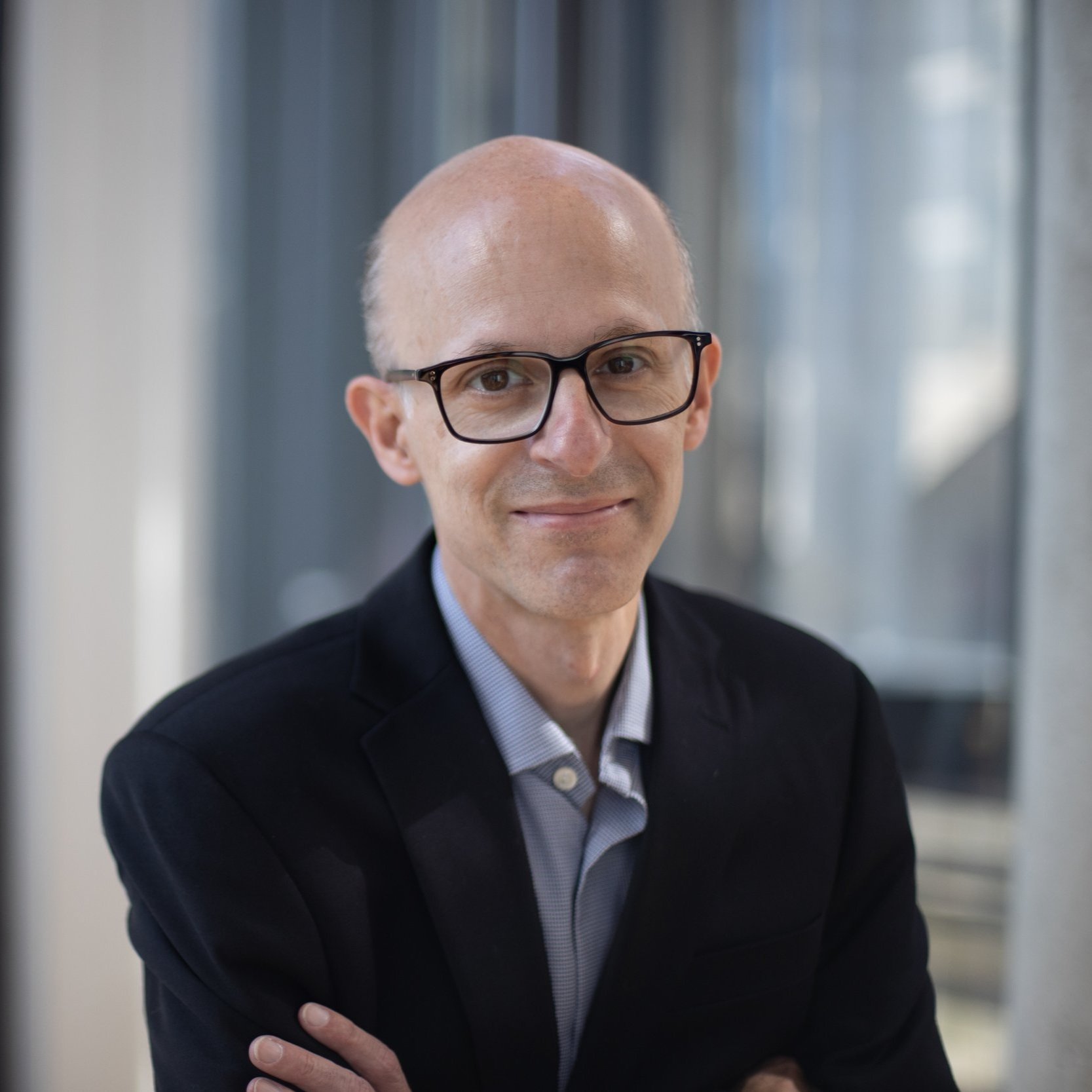
Dimitry Anastakis
Dimitry Anastakis is the LR Wilson/RJ Currie Chair in Canadian Business History at the University of Toronto in the Department of History and the Rotman School of Management. Professor Anastakis’s work addresses the intersection of business, the state and politics, particularly in the post-1945 period in Canada, and especially the development of the Canadian automotive industry within an international context. He has published nine books and edited collections, including Smart Globalization: The Canadian Business and Economic History Experience (UTP, 2014). He is the former co-editor of the Canadian Historical Review, was the first chair of the Canadian Business History Association, is a former Fulbright Chair (Michigan State University) and is a member of the College of New Scholars, Artists and Scientists of the Royal Society of Canada.

Fritz Bartel
Fritz Bartel is an Assistant Professor of International Affairs at the George H.W. Bush School of Government and Public Service at Texas A&M University. His book The Triumph of Broken Promises: The End of the Cold War and the Rise of Neoliberalism was published with Harvard University Press in 2022. As a dissertation, it won the 2018 Oxford University Press USA Dissertation Prize in International History from the Society for Historians of American Foreign Relations (SHAFR). Along with Nuno P. Monteiro, he also co-edited Before and After the Fall: World Politics and the End of the Cold War (Cambridge University Press, 2021). His work has been published in Enterprise & Society and Diplomatic History, and his research has been funded by the German Academic Exchange Service (DAAD) and the Miller Center. He received his PhD in history from Cornell University, and a B.A. from the University of Toronto.

Kerry Buck
Kerry Buck was most recently Assistant Secretary to the Treasury Board, Economic Sector, from 2018 to 2021. Prior to that, she was Canada's Ambassador and Permanent Representative to NATO from 2015 to 2018. Ms. Buck is a career diplomat who served as Political Director and Assistant Deputy Minister for International Security and Political Affairs, Assistant Deputy Minister for Afghanistan, Africa, Latin America and the Caribbean and Director General for the Middle East and Maghreb. Earlier in her career she was posted to the Canadian Permanent Mission to the United Nations in New York.
Ms Buck was chair of government Task Forces for Afghanistan, Russia/Ukraine, Syria, Mali, the Haiti earthquake and other foreign policy crises and humanitarian crises. Throughout her diplomatic career, she represented Canada at the G7, UN, NATO, OSCE on issues of human rights, security, disarmament, terrorism, humanitarian affairs and regional trade. She represented Canada on international negotiation of Women, Peace and Security issues from 1992 to 2018, helping build international law and practice on gender-based violence.
Ms. Buck also served in the Privy Council Office, the Canadian Human Rights Commission, the International Development Research Centre and the Constitutional Law Bureau of the Office of the Attorney General of Ontario and the Ontario Native Affairs Directorate.
Ms. Buck speaks English and French. She is married to Michael Pearson and has a son and three step-daughters.

Antony Anderson
Antony Anderson is the author of The Diplomat: Lester Pearson and the Suez Crisis, reviewed in Canada’s History, “A penetrating character analysis of Mike Pearson but also a clear-headed analysis of the evolution of Canadian foreign policy”; The Dorchester Review, “Someone should suggest to Justin Trudeau that he read this book…This is not a work of Canadian (or Liberal) hagiography or a paean to peacekeeping”; The Literary Review of Canada, “Anderson does a brilliant job of isolating nuggets of political and diplomatic life…that breathe energy into the daily grind of crisis management.” Anderson produced television programmes for The Dominion Institute (since merged with Historica Canada) including Foreign Fields (2003) which examined Canada’s fading role on the world stage. He has also produced documentaries about defence procurement, the CF in Afghanistan and the role of parliamentary committees as well as video segments for the Munk Debates. He has written op-ed pieces about Pearson and Canadian foreign policy for numerous Canadian newspapers. He attended Queen’s University.

Hany Besada
Dr. Hany Besada is the Senior Research/Programme Advisor & Research Coordinator of the United Nations Office for South-South Cooperation (UNOSSC), UN Development Programme (UNDP). He is also Senior Research Fellow at the United Nations University, Institute for Natural Resources in Africa (UNU-INRA).
Previously, Dr. Besada served as Deputy Executive Director at the Diamond Development Initiative; Senior Regional Advisor, African Mineral Development Centre (AMDC) at the UN Economic Commission for Africa (UNECA); Research Specialist on the United Nations Secretary General’s High-Level Panel Secretariat on the Post 2015 Development Agenda, UNDP; Theme Leader: Governance of Natural Resources at the North-South Institute (NSI); Program Leader and Senior Researcher at the Centre for International Governance Innovation (CIGI) in Waterloo, Canada; Principle Researcher: Business in Africa at the South African Institute of International Affairs (SAIIA) in Johannesburg, South Africa; and Policy Advisor for the South African Ministry of Local and Provisional Government.
Dr. Besada is the author of more than 80 peer-reviewed scholarly journal papers, dozens of policy papers, over 70 opinion pieces and editor/author of 14 books. He holds a PhD in Politics and International Studies from the University of Warwick.

Isabel Campbell - Visitor
Isabel Campbell is a historian at the Directorate of History and Heritage, National Defence Headquarters, Ottawa. She was educated at Memorial, Western, Carleton, and Laval universities. The author of Unlikely Diplomats. The Canadian Brigade in Germany, 1951-1964, she is a co-author on volumes three and four of the official histories of the Royal Canadian Navy and Royal Canadian Air Force respectively.
She is passionate about innovations in access and archives and an advocate for the whole life oral history methodology which she is utilizing to study Canadian Cold War military families. Current projects involve the analysis of gender roles and perceptions about cultural, racial, and linguistic “othering”, the contributions of Inuit guides in Canada’s north, and early Cold War allied intelligence relating to Canada’s defence planning.

Stephen Azzi
Stephen Azzi is professor of political management, history, and political science at Carleton University, where he was a founding faculty member and director of the Clayton H. Riddell Graduate Program in Political Management. His research focusses on political leadership, Canada-US relations, and nationalism in English Canada. His publications include the third edition of the Historical Dictionary of Canada (with Barry Gough, 2021), Reconcilable Differences: A History of Canada-US Relations (2015), and Walter Gordon and the Rise of Canadian Nationalism (1999).

Margaret Biggs
Margaret Biggs is Chairperson of the Board of Governors for the International Development Research Centre (IDRC), member of the Advisory Council for FinDevCanada and Chair of World University Services Canada (WUSC). She is also the Matthews Fellow in Global Public Policy at Queen’s University and Vice Chair of the Canadian Partnership for Women and Children’s Health. From 2008-2013, Ms. Biggs was President of the Canadian International Development Agency (CIDA) and responsible for overseeing Canada's international development and humanitarian assistance efforts worldwide. She has represented Canada in various international fora including the World Bank’s Board of Governors and as International Executive Co-Chair for the China Council on International Cooperation on Environment and Development.
Ms. Biggs is an active contributor on issues related to Canada and global sustainable development. In 2018 she co-authored with John W. McArthur “A Canadian North Star: Crafting an advanced economy approach to the Sustainable Development Goals” (Brookings Institution). In 2017 she authored “Inclusive Trade, Inclusive Development: Opportunities for Canadian Leadership” (IRPP) and co-led the Study Group on Global Education’s report “Equipping the Next Generation of Canadians to Succeed in a Complex World”.
Ms. Biggs served as Deputy Secretary to the Cabinet and Assistant Secretary, Priorities and Planning, Privy Council Office (2002-2008) and has an extensive background in social, labour market and income policies. Ms. Biggs is a graduate of the University of British Columbia and the Norman Paterson School of International Affairs, Carleton University.

Susan Colbourn
Susan Colbourn is associate director of the Triangle Institute for Security Studies based at the Sanford School of Public Policy at Duke University. She is the author of Euromissiles: The Nuclear Weapons That Nearly Destroyed NATO (Cornell, 2022) and the editor, along with Timothy Andrews Sayle, of The Nuclear North: Histories of Canada in the Atomic Age (UBC, 2020). At present, she is at work on an international history of efforts to transcend the Cold War division of Europe from the 1940s to the present, Whole, Free, At Peace: The Struggle to Overcome the Division of Europe.
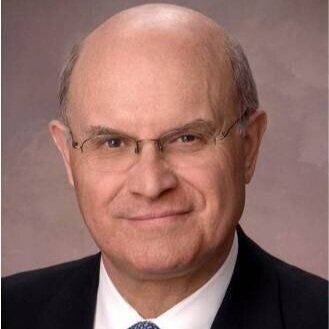
Hon. David Collenette
David Collenette served as a Member of the Canadian House of Commons for more than 20 years and in the cabinet led by three Prime Ministers, Pierre Trudeau, John Turner and Jean Chretien for a period of eleven years. He held several portfolios: Minister of State-Multiculturalism; Minister of National Defense; Minister of Veterans Affairs; Minister of Transport and Minister of Crown Corporations. He did not seek re-election in 2004.
During the constitutional debates of the early 1980's, Mr.Collenette, as Parliamentary Secretary to the Government House Leader, was assigned by the government to Westminister to represent Canada's interests in discussions with the British government and members of the House of Commons and House of Lords. He was proud to have voted for the Constitution Act (1982) which incorporated the Charter of Rights and Freedoms.
As Minister of National Defense, Mr. Collenette oversaw the reorganization, restructuring and reengineering of the department as the government confronted the severe financial deficit and was the author of the highly regarded 1994 Defence White Paper. During this period, the Canadian Forces were involved in challenging assignments in the Balkans, Rawanda and Haiti, as well as confronting the troubling issues relating to the earlier deployment to Somalia. David also worked closely with his American counterpart, William Perry, on the Partnership for Peace initiative which led to former Warsaw Pact nations joining NATO.
As Transport Minister, Mr. Collenette, was proud to have authored a major policy document, Straight Ahead, which charted a course for Canadian transportation policy over the next decade. In addition, he initiated several legislative changes including the Canada Marine Act and amendments to the Competition Act to deal with the restructuring of the Canadian airline industry. Perhaps the most challenging period of his career was overseeing Canada's response to the terrorist attacks of September 11th, 2001, and the subsequent issues related to transportation security.
As Regional Minister for the Greater Toronto Area, Mr. Collenette, in 2000-2003, oversaw federal infrastructure funding that resulted in the largest single expansion of cultural institutions in Canadian history at the Royal Ontario Museum, the Art Gallery of Ontario, The Four Seasons Centre for the Performing Arts, the National Ballet School, the Royal Conservatory of Music, the Roy Thompson Hall and the Gardiner Museum of Ceramic Art.
In the private sector, Mr.Collenette has worked in the life insurance, plastics and executive recruitment fields as well as an adviser to several Canadian and US companies in the transportation and defense industries.
Mr. Collenette holds a Bachelor of Arts (Honours), Master of Arts in political science, an Honourary Doctorate (LL.D.) from York University, Toronto as well as being a Fellow of the Chartered Institute of Logistics and Transport (F.C.I.L.T.) He served as Chancellor of the Royal Military College of Canada (1993-96); as a member of the International Advisory Council, Institute of International Studies, Stanford University, California (1999-2005); as Distinguished Fellow, Glendon College, York University (2004-2010); and as Distinguished Fellow, Ryerson University (2012-2013).
From 1987-1991, while in the private sector, Mr.Collenette also worked in a volunteer capacity for the National Democratic Institute, Washington, D.C. He was involved in democratic development projects and election monitoring in Haiti, Chile, Romania, and the Czech Republic.
Upon leaving elected politics in 2004 he resumed his association with NDI and served as Co-Leader of its observer mission to the Ukrainian presidential run-off election on November 21st, 2004, as Co-Leader of the parliamentary elections assessment mission for Pakistan in May 2007 and Co-Leader of the municipal elections assessment mission for Ukraine in October 2010.
He is past Chair and current Director of the Chartered Institute of Logistics and Transport (North America), former Vice-President, CILT International, the world’s premier logistics and transport organization with more than 30,000 members. Mr.Collenette is also a director of Harbourfront Corporation (Toronto) and a past member of the Toronto East General (now Michael Garron) Hospital Foundation Campaign Executive Team. In 2007 he served as Chair of the Mayor of Ottawa’s Task Force on Transportation which produced a landmark report, Moving Ottawa whose key recommendations have been adopted with the building of the new light rail system in the nation’s capital. He served as Special Advisor on High Speed Rail to the Government of Ontario, 2017-18. He is currently Vice-President and Secretary of the Harbourfront Corporation and Director Emeritus of CILTNA.
He currently serves as Chair, NATO Association of Canada.
From 2008-2021 Mr.Collenette was associated as Senior Counsel, with Hill+Knowlton Strategies, Canada, part of the world’s largest public relations, public affairs and communications company, WPP, based in the UK.
Mr.Collenette is bilingual (English and French).
David Collenette may be reached at: dcollenette@glendon.yorku.ca
David.Collenette@natoassociation.ca
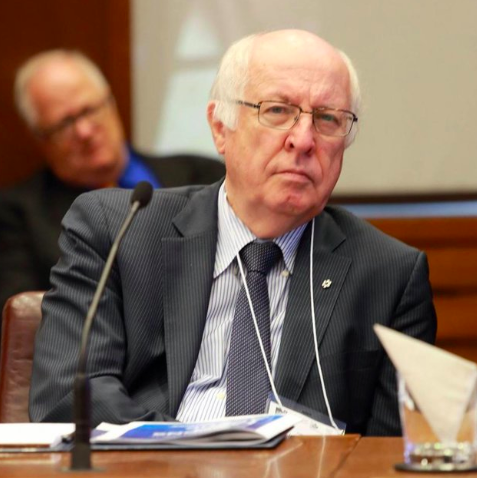
John English – Director Emeritus
A Distinguished Professor Emeritus at the University of Waterloo, John English has been a Liberal Member of Parliament, a Special Ambassador for Landmines and a Special Envoy for the election of Canada to the United Nations Security Council. He has also served as President of the Canadian Institute of International Affairs, co-editor of the Canadian Historical Review, chair of the Board of the Canadian Museum of Civilization and the Canadian War Museum. From 2012- 2019, John English served as Director of the Bill Graham Centre at Trinity College, and is now serving as Director Emeritus.

Douglas Goold
Douglas Goold was trained as an academic and has extensive experience with NGOs and a deep understanding of public policy,
Doug has a PhD in the history of international relations from Cambridge. He is the co-author of Peace Without Promise: Britain and the Peace Conferences, 1919-23, and taught modern history at UBC, Alberta and Victoria.
He has significant media experience including Editor of the Globe and Mail’s Report on Business. He was a reporter in the Parliamentary Press Gallery.
Doug was the President of the former Canadian Institute of International Affairs, where he oversaw (and redesigned) the International Journal, and was the first president of the Canadian International Council. He worked with Robert Greenhill on his influential report, Making a Difference? External Views on Canada’s International Impact.
From 2011 to 2014, Doug created and directed of the National Conversation on Asia at the Asia Pacific Foundation of Canada, and was the founder of the Toronto office. Foundation CEO Stewart Beck described the Conversation, the aim of which was to get Asia on the radar screen of Canadians, as “One of the most ambitious and successful initiatives in the 30 year history of the Foundation.”
The Conversation held events, including student events, in eight provinces, partnered with 30 Canadian NGOs (including the Asian Institute), and met with key policy-makers including Premiers. Doug published two major studies on India as well as articles on trade and Taiwan.
From 2015-20, Doug led a team of policy-makers at the Toronto Region Board of Trade, one of the largest Chambers in North America. He was responsible for 40 policy files, including trade, transportation, infrastructure and smart cities. He chaired over 100 events with key business and political figures, including many cabinet ministers. He was also in charge of the board’s partnership with Brookings Institution on its Global Cities Initiative.

John Kirton
John Kirton is director and founder of the Global Governance Program, which includes the G7 Research Group, the G20 Research Group, the BRICS Research Group and the Global Health Diplomacy Program, at Trinity College in the University of Toronto, where he is a professor emeritus of political science and a senior fellow of the Bill Graham Centre for Contemporary International History. He is co-author of the Reconfiguring the Global Governance of Climate Change (2022) and Global Governance of Climate Change: G7, G20 and UN Leadership (2015), and author of Canadian Foreign Policy in a Changing World (2002), China’s G20 Governance (2016) and G20 Governance for a Globalized World (2013). He is also co-editor of several books, including Accountability for Effectiveness in Global Governance (2018) and BRICS and Global Governance (2018). He co-edits a series of publications on the G7 and G20, most recently G7 Germany: The 2022 Elmau Summit and the forthcoming G20 Indonesia: The 2022 Bali Summit, as well as a series on global health diplomacy, including Health: A Political Choice – Investing in Health For All. Follow him on Twitter @jjkirton.

P. Whitney Lackenbauer
P. Whitney Lackenbauer, Ph.D., is Canada Research Chair (Tier 1) in the Study of the Canadian North and a Professor in the School for the Study of Canada at Trent University, Ontario, Canada, and a Senior Fellow with the Bill Graham Centre for Contemporary International History. He also is network lead of the North American and Arctic Defence and Security Network (NAADSN – www.naadsn.ca) and is Honorary Lieutenant Colonel of 1st Canadian Ranger Patrol Group, with more than sixty patrols across Canada’s Northern territories. Previously, he has been Killam Visiting Scholar at the University of Calgary, Distinguished Visiting Professor at Canadian Forces College, and a Fulbright Scholar at Johns Hopkins University. He has (co-)written or (co-)edited more than fifty books and more than one hundred academic articles and book chapters. His recent books include The Joint Arctic Weather Stations: Science and Sovereignty in the High Arctic, 1946-72 (2022); A History of the Canadian Rangers of Quebec: 2nd Canadian Ranger Patrol Group (2022); The Canadian Armed Forces’ Eyes, Ears, and Voice in Remote Regions: Selected Writings on the Canadian Rangers (2022); Lines in the Snow: Thoughts on the Past and Future of Northern Canadian Policy Issues (2021); On Thin Ice? Perspectives on Arctic Security (2021); Breaking Through? Understanding Sovereignty and Security in the Circumpolar Arctic (2021); and China’s Arctic Engagement: Following the Polar Silk Road to Greenland and Russia (2021). www.lackenbauer.ca

Rosemary McCarney
Rosemary McCarney (BA,LLB, MBA) joined the Graham Centre in 2020 following her return to Canada from Geneva where she served as Canada's Ambassador to the United Nations and the Conference on Disarmament. Rosemary's career has spanned executive roles in the high tech private sector, the not-for-profit sector and the public sector. Early in her career she practised law in Canada and in the US and co-established a successful consultancy which led to assignments in over 100 countries. Before accepting an appointment in the diplomatic service, Rosemary led Plan Canada International where she and her team led the successful global movement Because I am a Girl and established the International Day of the Girl at the United Nations. Rosemary is an award-winning author of children's books that bring to life the human rights and responsibilities of children for one another. In addition to her commitment to the Graham Centre, Rosemary is a Senior International Relations Fellow of NPSIA at Carleton University. At the University of Toronto, Rosemary is Senior Resident Fellow in Foreign and Defense Policy at Massey College and a Visiting Professor at Trinity College where she teaches Multilateral Diplomacy and Global Governance and in 2021 Global Health Security.

David Mulroney
David Mulroney is President and Vice-Chancellor of the University of St. Michael’s College, the Catholic federated university within the University of Toronto.
He came to St. Michael’s after more than 30 years in Canada’s Public Service. A career Foreign Service Officer, Mr. Mulroney was Canada’s ambassador to the People's Republic of China from 2009 to 2012.
Prior to his appointment to Beijing, Mr. Mulroney was assigned to the Privy Council Office in Ottawa as the Deputy Minister responsible for the Afghanistan Task Force, overseeing coordination of all aspects of Canada's engagement in Afghanistan. He also served as Secretary to the Independent Panel on Canada's Future Role in Afghanistan. Mr. Mulroney's other assignments included serving as Associate Deputy Minister of Foreign Affairs and, concurrently, as the Prime Minister's Personal Representative to the G8 Summit.
Mr. Mulroney is a Distinguished Senior Fellow at the University of Toronto's Munk School of Global Affairs, a Distinguished Fellow of the Asia Pacific Foundation of Canada, and an Honorary Fellow of the University of St. Michael's College. Like his mother, his sister and his daughter, he is a graduate of St. Michael’s.
Mr. Mulroney is a recipient of the Queen's Diamond Jubilee Medal, the University of Toronto's Arbor Award and in June 2015 received an honorary Doctor of Laws from Western University. His book Middle Power, Middle Kingdom was awarded the J.W. Dafoe Prize for 2015.

Erin O’Halloran - Visiting
Erin recently defended her doctoral thesis in Global & Imperial History at St Antony's College, Oxford. Her project, ‘Cairo between Worlds: Britain, India, and the Middle East, 1935-1942’, connects the history of interwar Cairo to broader narratives about empire, nationalism, and decolonisation in the Middle East and South Asia. She is currently completing a book based on the thesis.
Before starting at Oxford, Erin lived in Beirut, Lebanon from 2009 to 2014, where she worked in political analysis and communications at Al-Monitor, the Carnegie Middle East Center, and the United Nations. She holds a Joint Hons. BSc in International Relations & History from the London School of Economics, and an MA in Middle Eastern Studies from the American University of Beirut.
Erin’s research focuses on the connected histories of the Middle East, South Asia, and Western Europe, particularly within imperial, internationalist, and post-colonial frameworks. She is also interested in the role of ancient history, mythology, religion, and archaeology in modern projects of Empire and nation-state formation.

Ben Rowswell
Ben Rowswell is Director of the Global Democracy Program at CIC. He served as its President from 2018 to 2022
Ben has 25 years of experience as a practitioner of international relations. He earned his expertise in international security serving with the United Nations in Mogadishu, Somalia in 1993, as Canada’s first diplomatic envoy to Baghdad, Iraq, after the fall of Saddam Hussein, and as the head of the NATO Provincial Reconstruction Team in Kandahar at the height of Canada’s involvement in Afghanistan.
Ben has advised top levels of government on international strategy in the Privy Council Office during the tenures of Jean Chrétien and Stephen Harper, and at the Washington DC Center for Strategic and International Studies from 2003 to 2004.
But his abiding passion is the defence of human rights and democracy. He established the Democracy Unit of Global Affairs Canada, worked closely with human rights movements as a political officer in the Canadian Embassy to Egypt, and most recently as Canada’s Ambassador to Venezuela from 2014 to 2017.
Throughout his career, Ben has sought to engage citizens in the practice of international relations. After a fellowship at Stanford University that introduced him to the powerful role that individuals can play in global affairs, he pioneered the practice of digital diplomacy at Global Affairs Canada. This same passion led him to join Farhaan Ladhani in founding software startup called Betterplace, which tailors opportunities for citizens to engage in civic action through a mobile app.
You can follow Ben on Twitter at @benrowswell as well as @thecic, and the CIC’s blog, The Signal Board.

Irene Sage - Visiting
Irene Sage received her MA in Political Science from the University of Waterloo and her doctorate in International Relations from the University of Kent in 1996. Her thesis studied attempts to create an international grain reserve system. While at Kent, she worked closely with the Centre for Conflict Analysis, particularly in Northern Ireland. In 1997, she became the Deputy Director of the British-based Foundation for International Security. She took the lead in a major OSCE-supported conflict resolution process in Moldova. In 2001, she became the President of the Foundation of International Security when the Foundation worked internationally on conflict resolution. She served as a Trustee of the Cambodia Trust, Britain’s leading NGO dealing with landmines in Asia.
Upon her return to Canada, she served as a Senior Research Fellow at the Centre for International Governance Innovation and was a principal researcher on its African Initiative. She co-edited Canadian Agriculture in a Global Context and was co-author of Made in Canada: A Businessman in Politics.
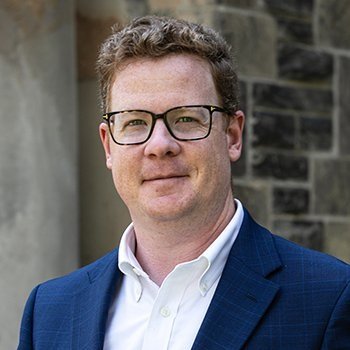
Tim Sayle
Timothy Andrews Sayle is an Associate Professor of History and Director of the International Relations Program. He is the author of Enduring Alliance: A History of NATO and the Postwar Global Order (Cornell, 2019). He has co-edited two volumes: with Jeffrey A. Engel, Hal Brands, and William Inboden The Last Card: Inside George W. Bush’s Decision to Surge in Iraq (Cornell, 2019); and with Susan Colbourn, The Nuclear North: Histories of Canada in the Atomic Age (University of British Columbia Press, 2020). His research on NATO, Canadian-American relations, and intelligence issues has been published in Canadian Military History, Cold War History, Intelligence & National Security, International Journal, International History Review, Historical Journal, International Politics, The Journal of Strategic Studies, and in several edited books.
Professor Sayle is a Senior Fellow of the Bill Graham Centre for Contemporary International History, an affiliate of the Centre for the Study of the United States, and an associate of the Center for Presidential History at Southern Methodist University. He is a Fellow of Trinity College and alumnus of Massey College.
Graduate and undergraduate students at the University of Toronto have worked with Professor Sayle to build Canada Declassified, a web repository of recently declassified archival records. This project has been supported by a SSHRC Insight Development Grant and a Connaught New Research Award. Professor Sayle is a project leader of the Canadian Foreign Intelligence History Project.

David Webster
David Webster is a History professor at Bishop’s University. Publications include, most recently, Challenge the Strong Wind: Canada and East Timor 1975-99 and the edited collection Flowers in the Wall: Truth and Reconciliation in Timor-Leste, Indonesia and Melanesia. Webster is a member of the international advisory council of the Centro Nacional Chega!, Timor-Leste’s centre for truth and memory.

John M. Dirks – Visitor
A historian of post 1945 Canadian and American external relations and foreign policy, and also a seasoned professional archivist, John M. Dirks completed his PhD at the University of Toronto in 2014 (he also has a Master’s from its Faculty of Information). His dissertation has now been reworked and published as a book, titled A Cooperative Disagreement: Canada-United States Relations and Revolutionary Cuba, 1959-93 (UBC Press 2022). He taught several senior year history courses in the International Relations program at Trinity College, University of Toronto between 2016 and 2019, and he has additional publications, including the chapter “Friendly Noises but Distant Neighbours: The Pearson Government, Latin America and the Caribbean, 1963-1968,” in the edited compilation Mike’s World: Lester Pearson and Canadian External Relations, 1963-1968 (UBC Press 2017) as well as an earlier article in Archivaria. Involved in the Canada Declassified project from its outset, he continues to participate and make contributions to it. At present he is a full-time archivist with the City of Toronto.

Drew Fagan
Drew Fagan is a professor at the University of Toronto’s Munk School of Global Affairs and Public Policy. He teaches a course on policy implementation in the school’s graduate program and is involved in numerous other university initiatives.
Mr. Fagan also is a public policy advisor as principal of Greenbrook Consulting Inc. Recent clients include departments, ministries, agencies and boards at all three levels of government.
Mr. Fagan is a senior fellow at the Public Policy Forum, where he has overseen recent research reports, as well as the C.D. Howe Institute and a number of university institutes. He also is senior counsel to the firm at National Public Relations Inc., where he provides strategic advice internally and to public and private sector clients.
Mr. Fagan previously spent 12 years in leadership positions with the governments of Ontario and Canada.
Mr. Fagan was Deputy Minister responsible for the 2015 Pan/Parapan American Games and Deputy Minister of Tourism, Culture and Sport at Queen’s Park. He also spent four years as Deputy Minister of Infrastructure, with responsibility for the province’s first long-term infrastructure plan.
Mr. Fagan joined the Ontario Public Service in 2009 from Ottawa, where he was Assistant Deputy Minister for strategic policy and planning at the Department of Foreign Affairs and International Trade. He served as the Prime Minister’s personal representative to the Asia-Pacific (APEC) summit process.
Before becoming a public servant and diplomat in 2004, Mr. Fagan worked at The Globe and Mail, including as parliamentary bureau chief, editorial page editor and columnist, foreign editor, associate editor of Report on Business and Washington correspondent.
Mr. Fagan is a board member of the Corporation of Massey Hall and Roy Thomson Hall and other organizations, including the Art Gallery of Ontario’s government affairs committee. He serves on the Ontario Government corporate audit committee. He is a former board member of the Canadian Tourism Commission and was interim editor of the Literary Review of Canada. He served on the United Way of Toronto’s campaign cabinet in 2013 and 2014, when he led the Ontario Government campaign. He was a member of the advisory board of the Munk School of Global Affairs from 2009 to 2017.
Mr. Fagan holds a Bachelor of Commerce degree from Queen’s University and a Master of Arts degree from the University of Western Ontario. He received his ICD.D designation in 2017 from the University of Toronto’s Rotman School of Management and he was honoured to be a convocation speaker at the University of Toronto’s 2016 graduation ceremonies.

Julie Gilmour
Julie Gilmour is a historian of International Relations based at Trinity College, the University of Toronto. Her work investigates the connections between ideology, race, policy, and lived experience. In the 1990s she did research in the newly opened archives of the former Soviet Union on questions of citizenship, gender, sport and diplomacy. Subsequently she investigated the movement of Displaced Persons from Europe to Canada in the years 1947-1953 and questions of ethnicity and immigration during the tenure of Prime Minister William Lyon Mackenzie King. Following from this she published Trouble on Main Street: W.L. Mackenzie King, Race, Reason and the 1907 Vancouver Riots, which followed the younger W.L. Mackenzie King in the years when he was known primarily as Canada’s expert on Asian immigration and opium control.

Brendan Kelly
Brendan Kelly is the Head of the Historical Section and Deputy Director of the Foreign Policy Research and Foresight Division at Global Affairs Canada. His biography of the Canadian diplomat Marcel Cadieux, The Good Fight: Marcel Cadieux and Canadian Diplomacy (UBC Press), was awarded the 2020 J.W. Dafoe Book Prize for the best book on Canada, Canadians, and/or Canada’s place in the world. His research on Canadian international and diplomatic history has appeared in such journals as the Canadian Historical Review, the American Review of Canadian Studies, and International Journal. He is the former Book Reviews Editor of International Journal, Canada’s leading journal of global policy analysis.

Daniel Livermore
Daniel Livermore holds a Ph.D. from Queen’s University and was a foreign service officer in Canada’s Department of Foreign Affairs and International Trade for more than 30 years, prior to his retirement in 2007. He served abroad at the Canadian Mission to the United Nations in New York, at the Canadian embassies in Santiago, Chile, and Washington, D.C., and as Ambassador to Guatemala and El Salvador from 1996 to 1999. In Ottawa he served in the Policy Planning Staff and headed divisions responsible for both human rights and regional security. He was Canada’s ambassador for the international landmine campaign from 1999 to 2002, and from 2002 to his retirement he was director general for security and intelligence. He is currently a Senior Fellow at the Graduate School of Public and International Affairs at the University of Ottawa, and he serves as a senior mentor in the National Security Program at the Canadian Forces College, Toronto.

Asa McKercher
Asa McKercher is Assistant Professor in the Department of History, Royal Military College of Canada and Editor-in-Chief of International Journal. He is the author of Camelot and Canada: Canadian-American Relations in the Kennedy Era (Oxford, 2016) and Canada and the World since 1867 (Bloomsbury, 2019), and co-editor of Mike’s World: Lester B. Pearson and Canadian External Affairs (UBC, 2017) and Undiplomatic History: Rethinking Canada in the World (McGill-Queen’s, 2019. He writes on international affairs, Canadian-American political history, and Canadian foreign policy and tweets @asa_mckercher.

Joseph McQuade
Joseph McQuade is RCL Postdoctoral Fellow at the University of Toronto's Asian Institute and a former SSHRC Postdoctoral Fellow at the Centre for South Asian Studies. He earned his PhD at the University of Cambridge as a Gates Scholar in 2017. His first monograph, A Genealogy of Terrorism: Colonial Law and the Origins of an Idea, was published by Cambridge University Press in 2020. He currently teaches in the Contemporary Asian Studies program and is Editor-in-Chief at the NATO Association of Canada. His research focuses on the evolution of terrorism as a category in imperial and international law from the early nineteenth century to the present.
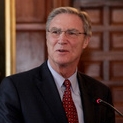
Stephen J. Randall – Visitor
Stephen J. Randall, FRSC, (PhD Toronto 1972), is Professor Emeritus and Faculty Professor at the University of Calgary. He served as Dean, Faculty of Social Sciences (1994-2006) at the University of Calgary. He served as director of the Institute for United States Policy Research in the School of Public Policy (2006-2009) and of the Latin American Research Centre (2010-14) He held previous appointments at McGill University (1974-1989) and the University of Toronto (1971-1974). He is an elected Fellow of the Royal Society of Canada, and a Senior Fellow in the Centre for Military and Strategic Studies. He was a Senior Fellow with the Canadian International Council for 2009-2010 working on Canada and the Americas. Randall is a Fulbright scholar (2007). He was a member of the editorial board of the Latin American Research Review (2004-2009), and was co-editor of International Journal of the Canadian Institute for International Affairs.
A specialist in United States foreign policy and Latin American international relations and politics, he holds the National Order of Merit, Grand Cross, and the Order of San Carlos from the Foreign Ministry of Colombia. In 2012 he received the Lifetime Public Service Award from the Canadian Council for the Americas. Randall has served with the United Nations, Organization of American States and Carter Center in international election supervision in the Caribbean, Latin America and Southeast Asia. He has published extensively in the areas of American foreign oil policy, Canada-US relations, and inter-American relations.
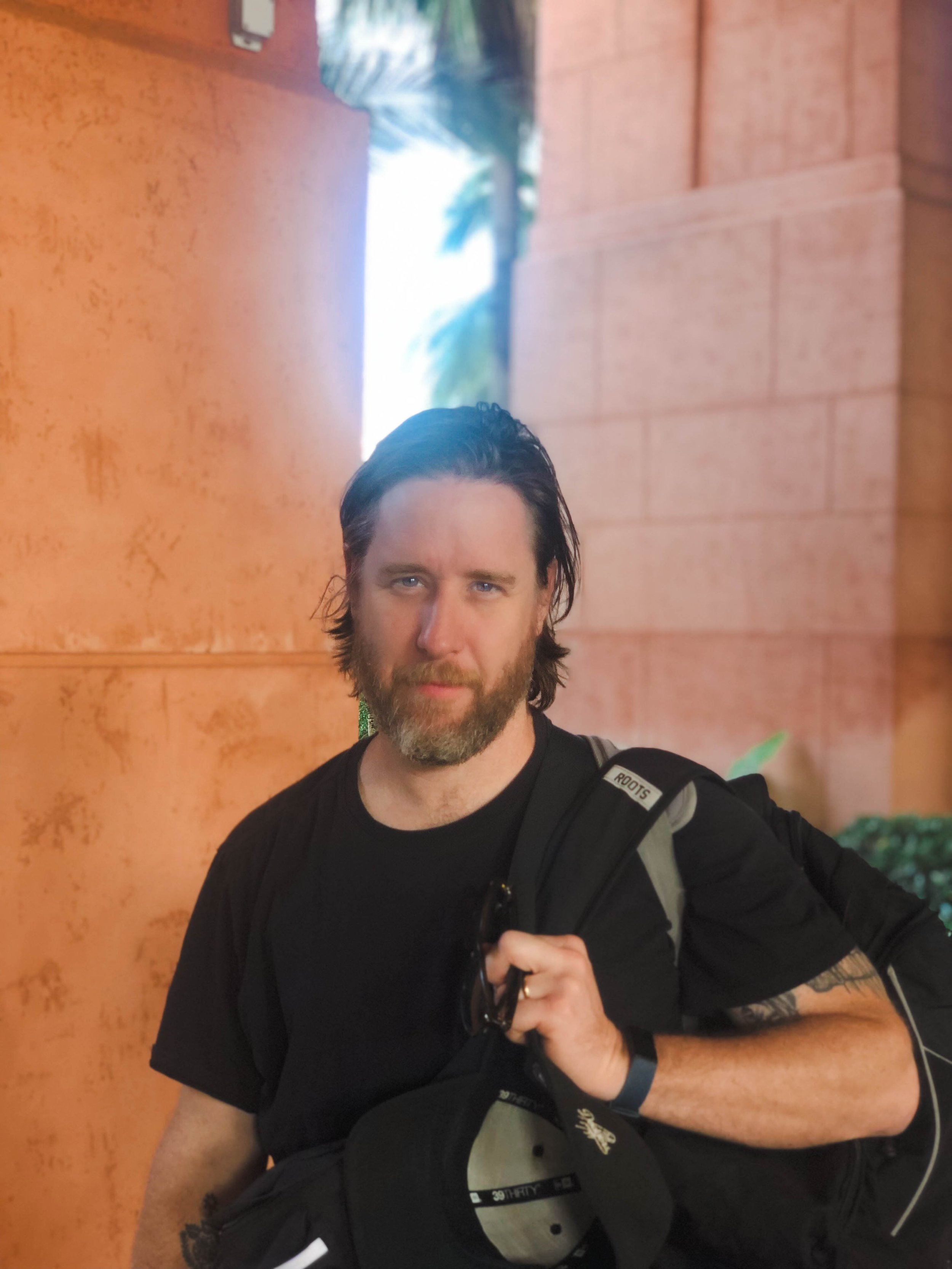
Mark Sanagan
Mark Sanagan is a historian of the Middle East and the author of the social biography Lightning through the Clouds: ‘Izz al-Din al-Qassam and the Making of the Modern Middle East (University of Texas Press, 2020). Described as a “masterful study” by the Journal of Palestine Studies, the book explores the life and mythology of a nationalist icon in the Arab world. Mark has taught at McGill, McMaster, Concordia, and Trent, and since 2014 he has been an editor of the Dictionary of Canadian Biography at the University of Toronto. He is currently working on his second book, in which he uses a diverse array of archival materials to tell a multiperspective story of a 1932 murder in Palestine, as a way of examining Arab, Israeli, and British colonial historiographies.

Jessica Shadian
Dr. Jessica M. Shadian is President and CEO of Arctic360. Over the course of two decades, Shadian has lived and worked as a researcher, associate professor, and consultant throughout the European and North American Arctic. Dr. Shadian is widely published; her peer-reviewed books, articles, book chapters and other news commentary concentrate on the global politics of the Arctic, Arctic Indigenous governance and law, critical Arctic infrastructure innovation and investment, and Canadian Arctic security and diplomacy. Her expertise is regularly solicited by media organisations, governments, the private sector, academia, and think tanks. Shadian’s 2014 book: The Politics of Arctic Sovereignty: Oil, Ice, and Inuit Governance (Routledge) is the first in-depth history of the Inuit Circumpolar Council (ICC) and Inuit sovereignty in global politics reaching back to pre-European discovery. Her consulting work began while living in the Norwegian Arctic as the co-creator and organizer of an Arctic Dialogue series that brought together state and local political and industry leaders, local and Indigenous communities, and academia to increase information sharing about Arctic resource development. Dr. Shadian holds a Ph.D. in Global Governance from the University of Delaware (2006) during which she wrote her doctoral dissertation at the Scott Polar Research Institute (SPRI), University of Cambridge, UK on an NSF award. She spent the following 5 years in Norway at the Barents Institute and then as a Senior Researcher at the High North Center for Business and Governance, Nord University, Bodø after which she was awarded an Associate Professor, Marie Curie COFUND Fellowship, at the Aarhus Institute of Advanced Studies (AIAS), Denmark. In June 2017, Shadian completed a two-year Nansen Professorship co-funded by the Norwegian Ministry of Foreign Affairs and the University of Akureyri, Iceland after which she turned to dedicate herself full-time to build Arctic360, Canada’s premier Arctic think tank. Arctic360 is a partnership with the Bill Graham Centre for Contemporary International History, Trinity College, and the Munk School of Global Affairs. Shadian lives in Toronto with her husband and two children.
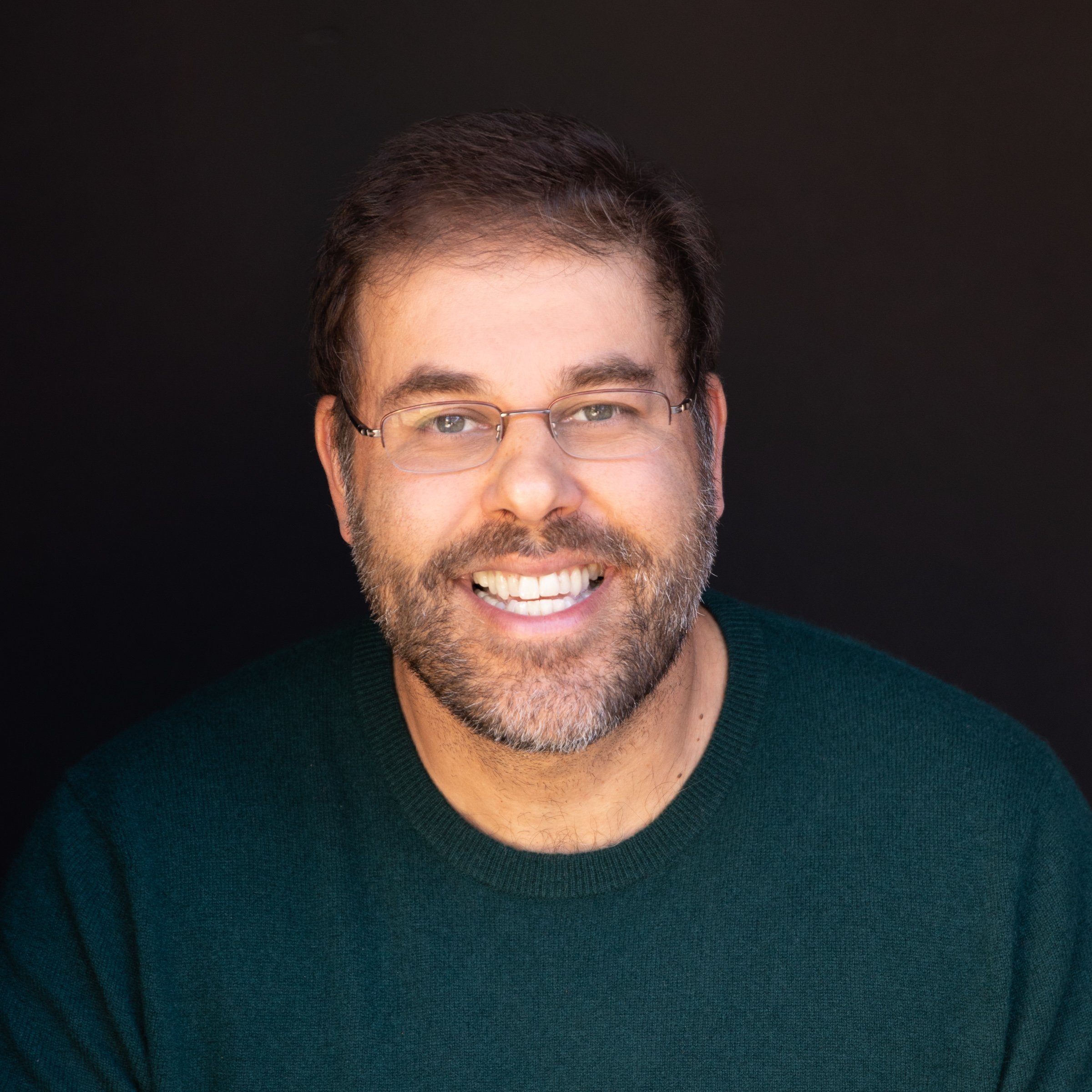
Jeremi Suri
Jeremi Suri holds the Mack Brown Distinguished Chair for Leadership in Global Affairs at the University of Texas at Austin. He is a professor in the University's Department of History and the LBJ School of Public Affairs. Professor Suri is the author and editor of eleven books on politics and foreign policy, most recently: Civil War By Other Means: America’s Long and Unfinished Fight for Democracy. His other books include: The Impossible Presidency: The Rise and Fall of America’s Highest Office; Liberty’s Surest Guardian: American Nation-Building from the Founders to Obama; Henry Kissinger and the American Century; and Power and Protest: Global Revolution and the Rise of Détente. His writings appear in the New York Times, Washington Post, Wall Street Journal, CNN.com, Atlantic, Newsweek, Time, Wired, Foreign Affairs, Foreign Policy, and other media. Professor Suri is a popular public lecturer and comments frequently on radio and television news. His writing and teaching have received numerous prizes, including the President’s Associates Teaching Excellence Award from the University of Texas and the Pro Bene Meritis Award for Contributions to the Liberal Arts. Professor Suri hosts a weekly podcast, “This is Democracy.”

Patrice Dutil
Patrice Dutil is an award-winning Professor in the Department of Politics and Public Administration at Toronto Metropolitan University. He is the author, co-author or editor of eleven books and of dozens of scholarly articles and chapters in refereed publications, as well as hundreds of articles in a variety of media. He was the founding editor (1991-1996) of the Literary Review of Canada and President of the Champlain Society (2011-2017). In 2013-14 he was a visiting scholar at Massey College (University of Toronto) and visiting professor in the Schar School of Policy and Government at George Mason University. In the fall of 2018 he was visiting professor at Boston University. He holds a PhD in History from York University, an M es Arts from the Université de Montréal, and a BA (Hon.) from York University. Before joining Toronto Metropolitan University in 2006, he worked in the Government of Ontario, TVOntario and the Institute of Public Administration of Canada.
Dr. Dutil’s main research interests are political and public sector leadership, the process of political development, and the study of elections. He writes about a wide range of issues in the policy development process both from a historical and contemporary standpoint.

Joy Fitzgibbon
Joy Fitzgibbon received her PhD from the University of Toronto. She currently serves as Assistant Professor and Associate Director of the Margaret MacMillan Trinity One Program at Trinity College and is a Fellow of College. Joy’s research considers the ways in which we respond more effectively and compassionately to human suffering in the hardest of places, focusing on solutions to governance dilemmas in global health policy and violence against women in conflict zones. She is exploring new modalities of pedagogy that enable us to learn, live and serve our communities in integrated and sustainable ways. A recipient of a joint Social Sciences and Humanities Research Council of Canada/ Canada Health Services Research Foundation Grant for her doctoral research on Harvard’s Partners in Health and its policy advocacy at the World Health Organization, she is also the co-author of Networks of Knowledge (University of Toronto Press) with Janice Stein, Richard Stren and Melissa MacLean. She has served as a governance and policy advisor on the board of Food for the Hungry Canada, lectured as faculty in the International Paediatric Emergency Medicine Elective and in the Canadian Disaster and Humanitarian Response Training Program and submitted policy reports the then Canadian Centre for Arms Control and Disarmament and the Canadian International Development Agency (with Janice Stein). She served on the University of Toronto’s Academic Board, and currently serves on the Senate at Trinity College and as Chair of the Senior Common Room. She was honoured to join a number of her colleagues in receiving the inaugural Chancellor William C. Graham Award for service to the Trinity College community.

Steve Hewitt
Steve Hewitt is Assistant Professor in the Department of History and the Centre for the Study of North America at the University of Birmingham in the United Kingdom. He has written a number of articles and books related to security and intelligence in the past and present, and in a Canadian, British, and American context, including Spying 101: The RCMP’s Secret Activities at Canadian Universities, 1917-1997 (University of Toronto Press, 2002), The British War on Terror (Continuum, 2008) and, co-authored with Christabelle Sethna, Just Watch Us: RCMP Surveillance of the Women’s Liberation Movement in Cold War Canada (McGill-Queen’s University Press, 2018). Currently, he is working on two related projects: a history of lone-actor terrorism in Canada and a history of terrorism and counter-terrorism in Canada. In particular, he is interested in the intersection of masculinities and extreme violence, particularly among lone-actor terrorists He also has had a lengthy involvement in Canadian studies in the United Kingdom, including as president of the British Association for Canadian Studies from 2011 to 2014. He tweets regularly at @stevehewittuk and on the history of terrorism at @TerrorisingHis1

Eugene Lang
Eugene Lang is Assistant Professor in the School of Policy Studies at Queen’s University, where he teaches in the Master of Public Administration (MPA) and Professional (mid-career) Master of Public Administration programs.
A Fellow with the Canadian Global Affairs Institute, Lang was previously Visiting Fellow, Munk School of International Studies, University of Toronto and BMO Visiting Fellow, Glendon School of Public and International Affairs, Glendon College, York University, where he taught in the M.A. program and was Interim Co-Director of the School.
Lang has published over two hundred journal articles, op eds, and book chapters on national defence, national security, foreign affairs and economic policy. His book The Unexpected War: Canada in Kandahar (co-authored with Janice Stein), was a national best-seller that won the Writer’s Trust Cohen Prize for political writing and was short-listed for the Donner Prize for the Best Book on Canadian Public Policy. A regular commentator in broadcast and print media, Lang has written for The Globe and Mail, The Toronto Star, The National Post, The Ottawa Citizen, The Montreal Gazette, Walrus, and many other newspapers.
Lang worked for many years in the Canadian government, notably as Chief of Staff to two Ministers of National Defence (John McCallum and Bill Graham). He was heavily involved in the government’s policies on the conflict in Afghanistan; Ballistic Missile Defence; NORAD renewal; The Defence Policy Statement: A Role of Pride and Influence in the World; and the 2005 federal Budget, which delivered the largest increase in funding in a generation to the Department of National Defence and the Canadian Forces.
He has testified as an expert witness before federal review panels and commissions, including The Independent Panel on Canada’s Future Role in Afghanistan (“The Manley Panel”, 2008), and the Independent Comprehensive Review of the Department of National Defence and the Canadian Armed Forces (“The Arbour Review”, 2021-22”).
Educated at the University of Western Ontario (B.A., M.A. in political science), Queen’s University (M.P.A.) and the London School of Economics (M.Sc. International Political Economy), where he studied as a Chevening Scholar, Lang lives in Ottawa with his wife and children.
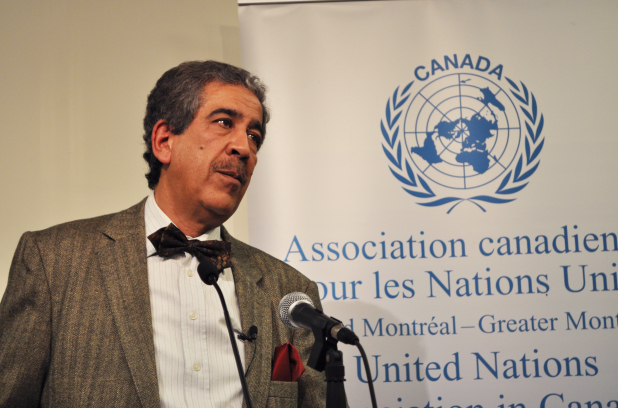
Mokhtar Lamani
Mr. Mokhtar Lamani is currently a member of the IRB (Immigration and refugees Board), a Senior Fellow at the Bill Graham Center in Toronto and distinguished fellow of the CIC. He was the Head of the Office of the UN-League of Arab States Joint Special Representative for Syria in Damascus, September 2012 to May 2014. Before his appointment in OJSRS-D, Mr. Lamani was the senior visiting fellow at the Centre for International Governance Innovation (CIGI) in Canada.
Previously, he served as Ambassador Special Representative of the Arab League in Iraq, appointed by the Arab Summit in 2006. On behalf of the Arab League, he worked to reconcile fractious parties and sectarian groups in Iraq while building peaceful relations between Iraq and neighboring countries.
Prior to his position as Special Representative, Mr. Lamani. Served as Ambassador of the Organization of the Islamic Cooperation to the United Nations in New York from 1998 to 2004.
His distinguished career in international diplomacy includes a number of positions with the General Secretariat of the Arab League, including Deputy Permanent Observer to the UN, Officer in Charge of Iraq-Kuwait dispute, Coordinator of Secretariat Reform, Coordinator of the Euro-Arab Dialogue and Afro-Arab Cooperation, as well as responsible of European relations.
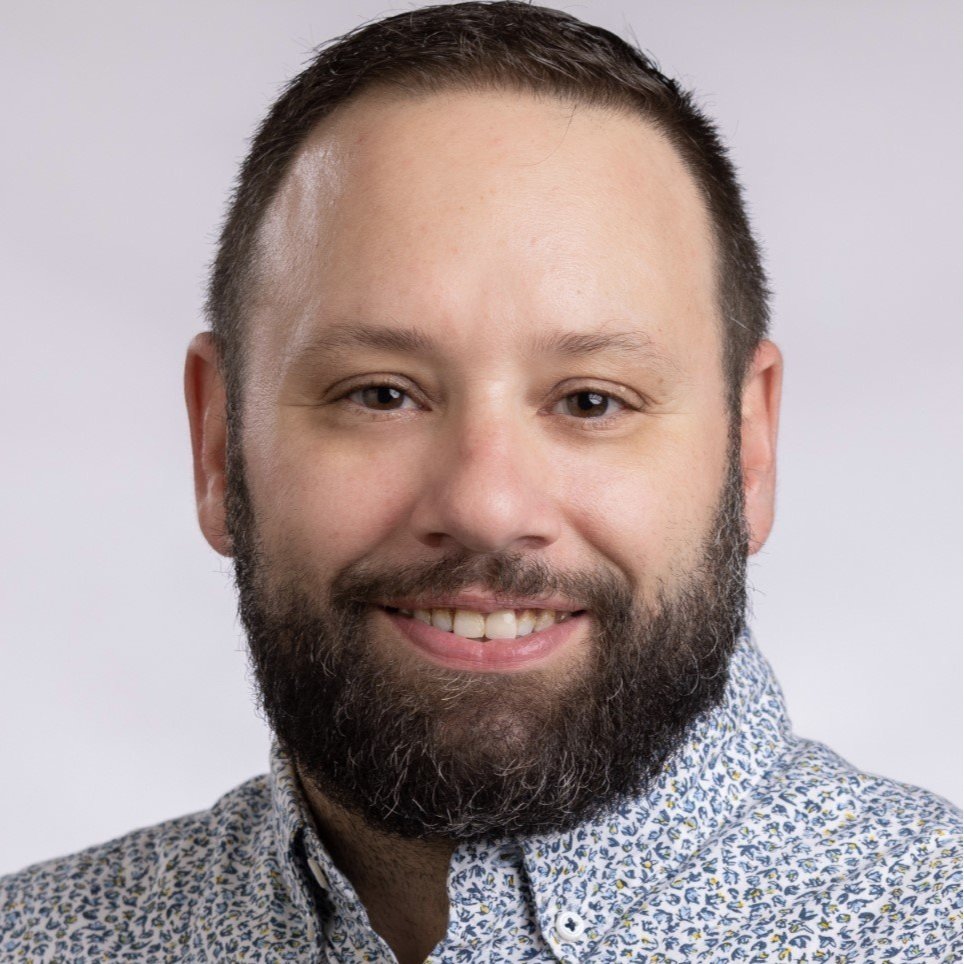
Daniel Macfarlane
Daniel Macfarlane is an Associate Professor in the Institute of the Environment and Sustainability at Western Michigan University. His research examines Canada-US relations and environmental politics, particularly water and energy issues in the Great Lakes-St. Lawrence basin. Daniel is the author or co-editor of books on the St. Lawrence Seaway and Power Project; Niagara Falls; Canada-US border waters; and the International Joint Commission. His book Natural Allies: Environment, Energy, and the History of US-Canada Relations, will be published in 2023, and another book on the transnational environmental history of Lake Ontario is nearing completion. Daniel holds a Ph.D. from the University of Ottawa and was previously a Banting Postdoctoral Fellow and a Fulbright Visiting Research Chair.
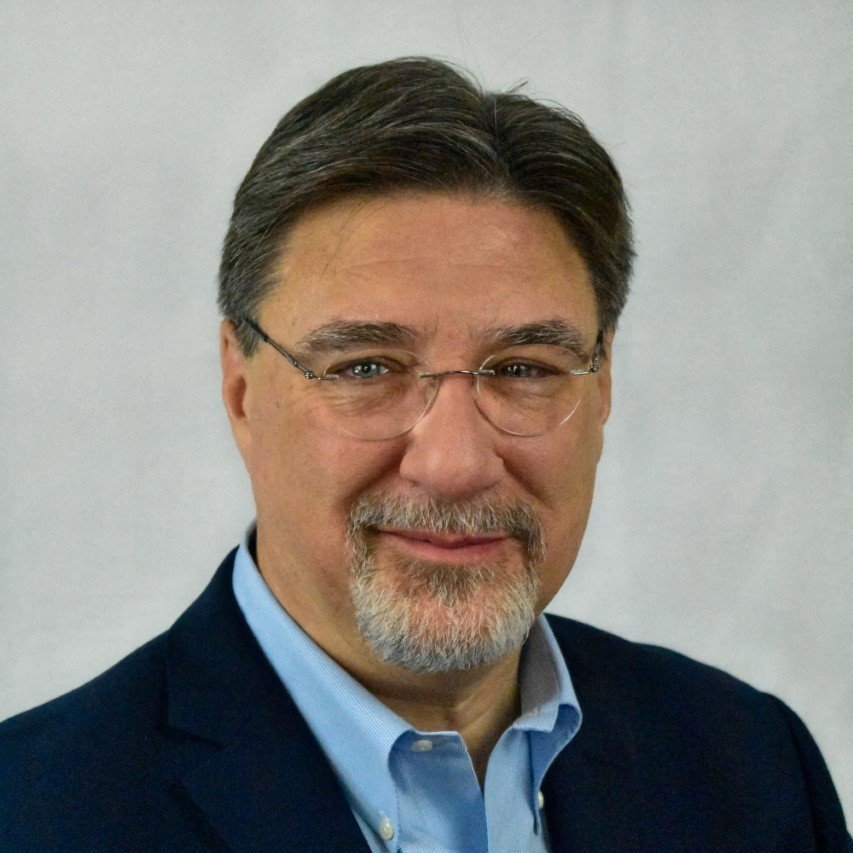
Tom Nichols
Tom Nichols is a staff writer at The Atlantic. An expert on Russia and international security issues, he taught national security affairs for 25 years at the U.S. Naval War College, as well as at the Harvard Extension School, Dartmouth College, and Georgetown University. He was a Fellow of the Kennedy School of Government at Harvard, and an adjunct at the US Air Force School of Strategic Force Studies. In Washington, he was a Fellow of the Center for Strategic and International Studies and served on Capitol Hill as personal staff for defense and security affairs to the late Senator John Heinz of Pennsylvania.
He is the author of several books, and in 2017 he wrote The Death of Expertise: The Campaign Against Established Knowledge and Why It Matters, an international best-seller that has been translated into fourteen foreign languages. His most recent book is Our Own Worst Enemy: The Assault >From Within on Modern Democracy, which Publisher’s Weekly called "A searing critique of contemporary political culture and the rise of illiberalism on both the right and the left."
He is also a five-time undefeated Jeopardy! champion and was listed in the Jeopardy Hall of Fame after his 1994 appearances as one of the best players of the game.
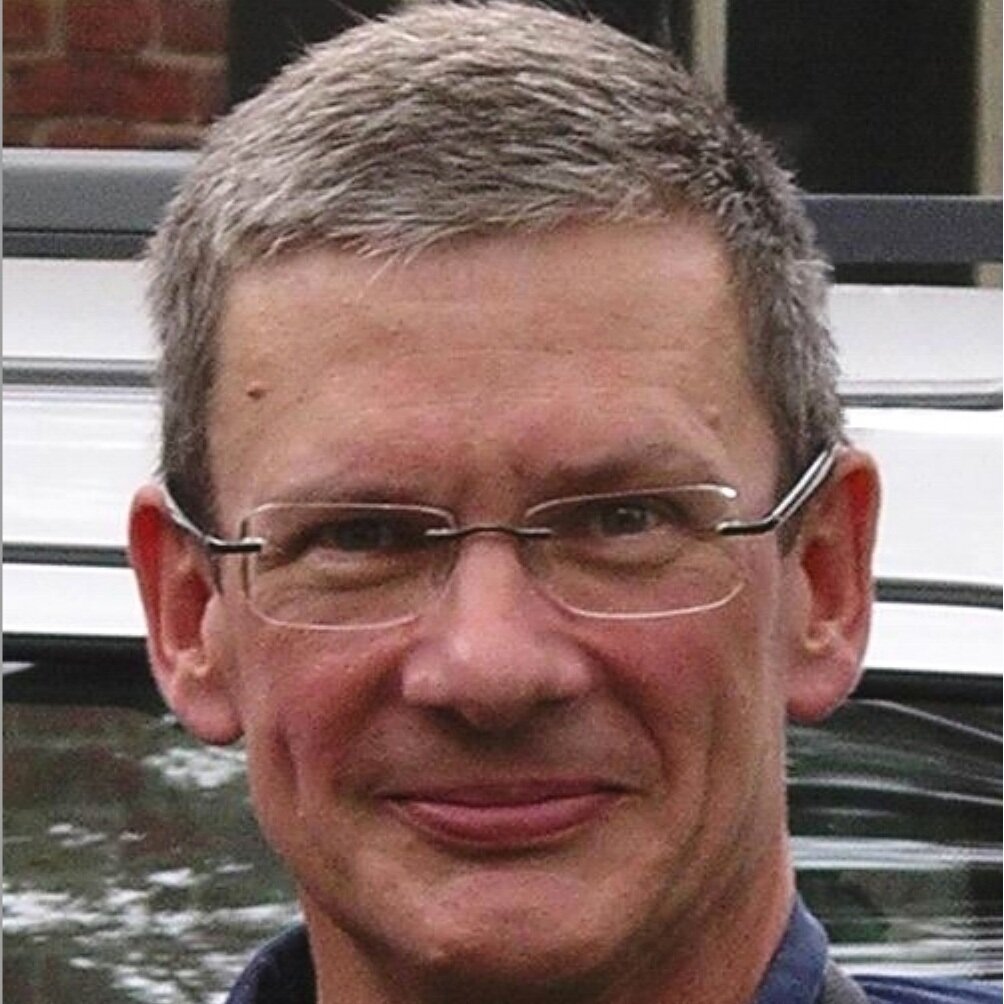
James Retallack
Jim Retallack studied as a Rhodes Scholar at Oxford University and received his D.Phil. in 1983. He joined the History Department at the University of Toronto in 1987, and was promoted to the rank of University Professor in 2019. He became an elected Fellow of the Royal Society of Canada in 2011. His research, writing, and public lectures have mainly addressed issues of democracy and authoritarianism in pre-1918 Germany, including governmentality, voting rights, antisemitism, antisocialism, and the former Kingdom of Saxony. He also teaches courses and supervises Ph.D. dissertations in German and European history from 1740 to 1945. His work has been assisted by research grants, fellowships, and prizes from the Guggenheim, Humboldt, Henkel, and Killam foundations and the SSHRC. He has held visiting positions at Stanford University, the Free University Berlin, and the University of Göttingen. He currently sits on the Advisory Board of the UK journal German History and the Editorial Board of German History in Documents and Images. He is also one of three General Editors of Oxford Studies in Modern European History. Retallack has authored or edited fourteen books, two special issues of scholarly journals, and two book-length digital publications. In January 2022, the University of Toronto Press published his book German Social Democracy through British Eyes: A Documentary History. His prize-winning monograph Red Saxony: Election Battles and the Spectre of Democracy in Germany (Oxford, 2017) will appear in a revised German edition in 2022. One of his current research projects is a new biography of August Bebel (1840-1913), founder and leader of the largest socialist party in the world before the First World War. He is also writing a book with the working title Exclusionary Politics and the Security State in Imperial Germany.
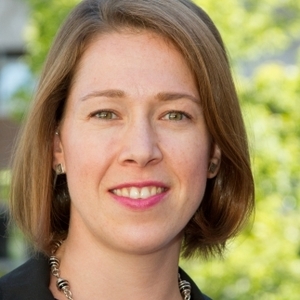
Leah Sarson – Visitor
Leah Sarson is an assistant professor at Dalhousie University, where her work explores Indigenous global politics in the extractive resource sector. Her broader research interests focus on Canadian foreign policy, International Relations, gender, and the Arctic. Prior to joining Dalhousie, she was a Fulbright researcher and SSHRC post-doctoral fellow at Dartmouth College in Hanover, New Hampshire, where she remains a fellow at the Dickey Center for International Understanding and a visiting Arctic fellow at the Institute of Arctic Studies. She completed her PhD in Political Studies in December 2016 at Queen’s University in Kingston, Ontario, where she is also a fellow at the Centre for International and Defence Policy. Dr. Sarson holds additional positions at the Bill Graham Centre for Contemporary International History at the University of Toronto and the Canadian International Council. She is a member of the board of directors of Women in International Security-Canada and has held professional positions at the Asia Pacific Foundation of Canada and Global Affairs Canada, among others.

Craig Damian Smith – Visitor
Craig Damian Smith is the Associate Director of the Global Migration Lab at the Munk School of Global Affairs. He earned his PhD from the Department of Political Science at the University of Toronto. His research focuses on migration, displacement, European foreign policy, and refugee integration. His doctoral thesis "Malignant Europeanization: Schengen, Irregular Migration Governance, and Insecurity on Europe's Peripheries" examines the effects of European migration governance on transit states. He has conducted several years of fieldwork throughout the Middle East, North Africa, Western Balkans, and Europe. His current SSHRC-funded research looks at the effects of social networks on refugee integration. In addition to his scholarly work he has provided media commentary on migration and refugee issues to outlets including the BBC, CBC, and NBC.

George S. Takach
George S. Takach obtained undergraduate and law degrees from the University of Toronto, and a graduate degree from the Norman Paterson School of International Affairs. He is a former partner and national Technology Industry Leader at the McCarthy Tétrault law firm, where for 35+ years he represented Canadian and international technology companies (with financings, M&A and commercial matters) and traditional companies and governments with their sophisticated technology transactions and projects. George was an Adjunct Professor of computer law at Osgoode Hall Law School for 22 years. He is the author of Computer Law and two other books on the business of technology. He is now writing books on technology and geopolitics for a general audience, including Cold War 2.0: Artificial Intelligence in the New War Between China, Russia and America (available from Simon & Schuster.com).

Cindy Ewing
Cindy Ewing is the Assistant Professor of Contemporary International History in the Department of History and the International Relations Program at Trinity College. Cindy's research and teaching focus on the international history of decolonization and its connections to the Cold War in Asia, Africa, and the Middle East. She is working on a book manuscript entitled, The Asian Unity Project: Human Rights and the International Solidarities of the Third World, 1945-1965. At the University of Toronto, Cindy will be teaching courses in the global history of international relations, contemporary military history and foreign relations, and human rights.

Francis J. Gavin
Francis J. Gavin is the Giovanni Agnelli Distinguished Professor and the inaugural director of the Henry A. Kissinger Center for Global Affairs at Johns Hopkins SAIS. Previously, he was the first Frank Stanton Chair in Nuclear Security Policy Studies at MIT and the Tom Slick Professor of International Affairs and the Director of the Robert S. Strauss Center for International Security and Law at the University of Texas. From 2005 until 2010, he directed The American Assembly’s multiyear, national initiative, The Next Generation Project: U.S. Global Policy and the Future of International Institutions. Gavin’s writings include Gold, Dollars, and Power: The Politics of International Monetary Relations, 1958-1971 (University of North Carolina Press); Nuclear Statecraft: History and Strategy in America’s Atomic Age (Cornell University Press) and Nuclear Weapons and American Grand Strategy (Brookings Institution Press), which was named a 2020 Choice Outstanding Academic Title.

Norman Hillmer
Norman Hillmer is Chancellor’s Professor of History and International Affairs at Carleton University. He is the biographer of Oscar Douglas Skelton, the early twentieth century architect of the Department of External Affairs and an independent Canadian foreign policy, and the author or editor of thirty other books on Canada’s international relationships, the history of the Commonwealth, and conflict and its resolution. His books have been translated into French, Japanese, and Chinese, and his work has been published in the United States, the United Kingdom, Japan, China, and Sweden. Educated at the University of Toronto and Cambridge University and the former Senior Historian of the Department of National Defence, Dr. Hillmer is a member of the Order of Canada and a Fellow of the Royal Society of Canada.

Jon R. Lindsay
Jon R. Lindsay is Assistant Professor at the Munk School of Global Affairs & Public Policy and in the Department of Political Science at the University of Toronto. He is the author of Information Technology and Military Power (Cornell University Press, 2020) and co-editor of Cross-Domain Deterrence: Strategy in an Era of Complexity (Oxford University Press, 2019) and China and Cybersecurity: Espionage, Strategy, and Politics in the Digital Domain (Oxford University Press, 2015). He holds a Ph.D. in Political Science from the Massachusetts Institute of Technology and an M.S. in Computer Science and B.S. in Symbolic Systems from Stanford University, and he has served in the U.S. Navy.

Lea Matheson
Lea has a unique international perspective gained from working for over 20 years at the international level as a practitioner in international relations with particularly focuses around migration, displacement, humanitarian action and multilateralism. Lea has worked extensively with the United Nations, most recently, she was adviser to the United Nations President of the General Assembly and as the International Organization for Migration’s Deputy Permanent Observer and chargé d'affaires to the United Nations in New York.
After receiving her MA in political science, she worked in the Middle East, Africa, Timor Leste, the Balkans, Geneva and New York. Lea was one of the first humanitarians with the UN to work in Baghdad after the fall of the regime in 2003, and was an instrumental actor in re-designing the humanitarian system after the large humanitarian disasters following the earthquake in Pakistan, the Tsunami in Asia and the Darfur Crisis. Furthermore, Lea worked closely on the New York Declaration for Refugees and Migrants as well as the Global Compact for Safe, Orderly and Regular Migration, bringing issues around international migration into the UN system for the first time. Lea has advised top levels of the UN on humanitarian and migration issues. She has spearheaded the development of several core protection policies and operational guidance adopted by the UN and international NGOs. She is passionate about social justice both at home and abroad and Canada’s role in the world. She is an advocate for those who are the most vulnerable.
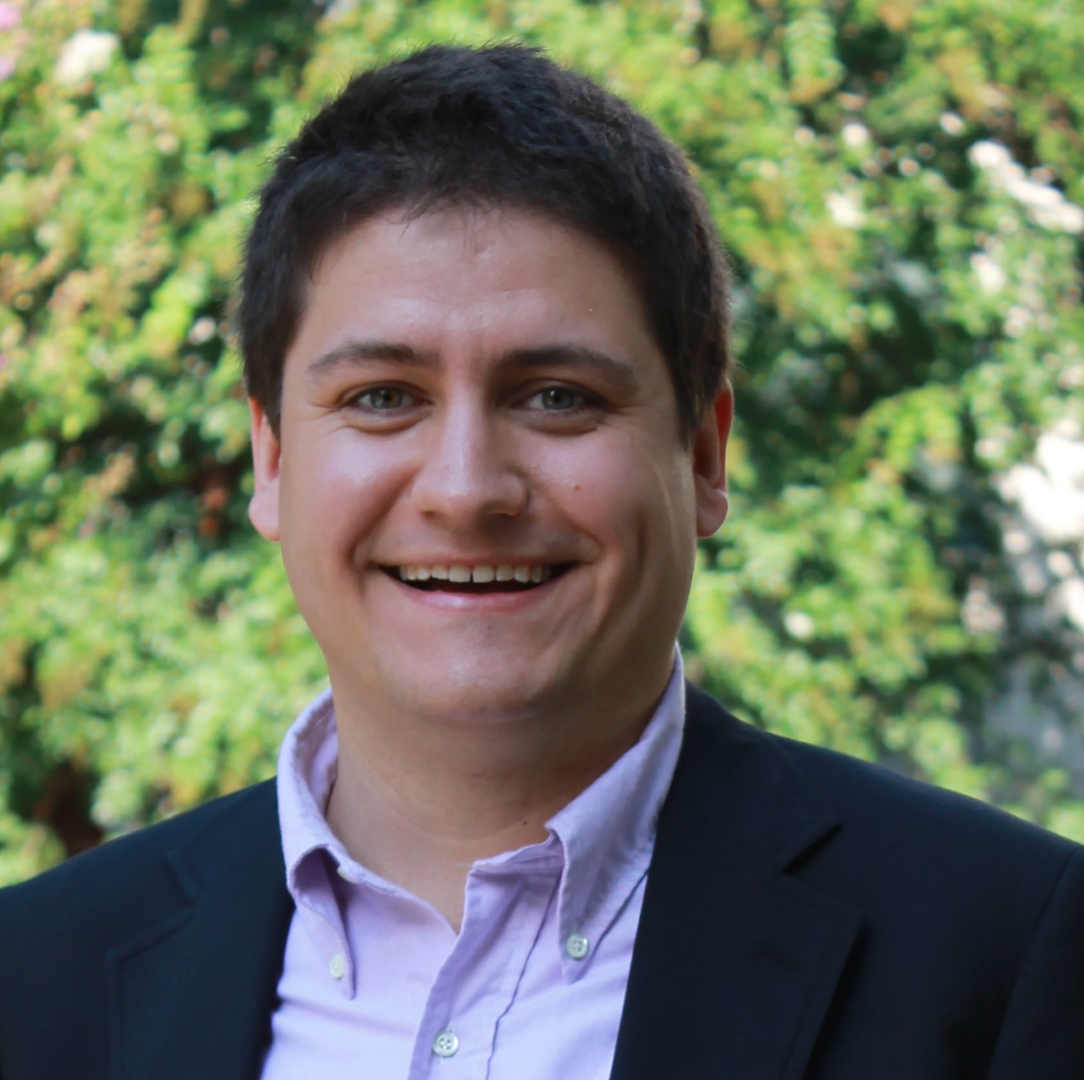
Simon Miles
Simon Miles is Assistant Professor in the Sanford School of Public Policy at Duke University. He is the author of Engaging the Evil Empire: Washington, Moscow, and the Beginning of the End of the Cold War, published by Cornell University Press in the fall of 2020. He has also published his research in Diplomacy and Statecraft, Diplomatic History, the Journal of Cold War Studies, Slavic Review, and the Texas National Security Review. His commentary has appeared in Foreign Policy, the Globe and Mail, War on the Rocks, and the Washington Post. His second book, On Guard for Peace and Socialism, is an international history of the Warsaw Pact.

Jennifer Orange
Jennifer is a Senior Fellow at the Bill Graham Centre. She is a lawyer, adjudicator, and human rights scholar. She received her S.J.D. from the University of Toronto, her LL.M. from New York University, her LL.B. from the University of Toronto, and her B.A. in Asian and Middle Eastern Studies from the University of Pennsylvania. Her research includes investigating the relationship of cultural institutions with new developments in both international and domestic human rights law. She is passionate about the potential for partnerships between cultural and legal institutions in the work to prevent, and recover from, human rights violations. She has taught International Human Rights Law and the Law of Armed Conflict at the University of Toronto, Faculty of Law, and is a frequent speaker on international law, human rights and the role of museums. Called to the Bar of Ontario, she litigated cases at Torys LLP from 2000 to 2007. She is an advocate for the inclusion of the most marginalized voices in decision-making processes and has broad experience as a board and committee member at several mental health and patient organizations. She currently sits on the Advisory Board of the Canadian Centre for the Responsibility to Protect and is a member of the Human Rights Tribunal of Ontario.

Elizabeth Riddell-Dixon
Dr. Elizabeth Riddell-Dixon is a Distinguished Senior Fellow at The Bill Graham Centre for Contemporary International History at the University of Toronto, and Professor Emerita of International Relations and former Chair of the Department of Political Science at Western University.
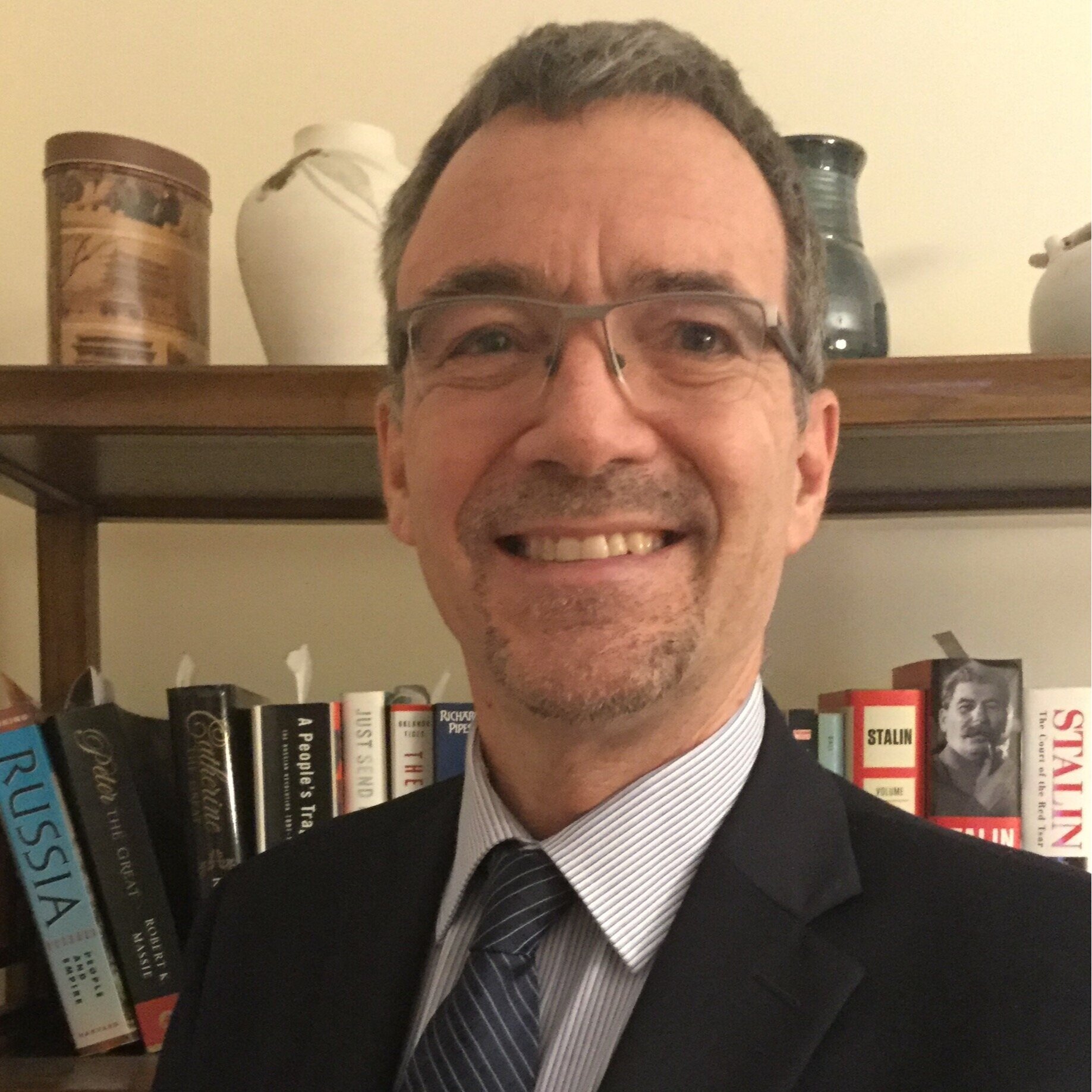
Leigh Sarty
Leigh Sarty is Adjunct Professor at the Institute of European, Russian and Eurasian Studies and a Senior Fellow at the Norman Paterson School of International Affairs at Carleton University. A specialist on Russia, China and Sino-Russian relations, he has served at Canada's embassies in both Beijing and Moscow, most recently as Deputy Head of Mission in the Russian Federation (2012-2016). Following a three-year appointment as Global Affairs Canada Scholar in Residence, he retired from the department in 2021. He holds a PhD in Political Science and a Certificate from the Harriman Institute for Advanced Study of the Soviet Union from Columbia University, in addition to an M.A. from Carleton University and a B.A. from Trinity College's International Relations program.
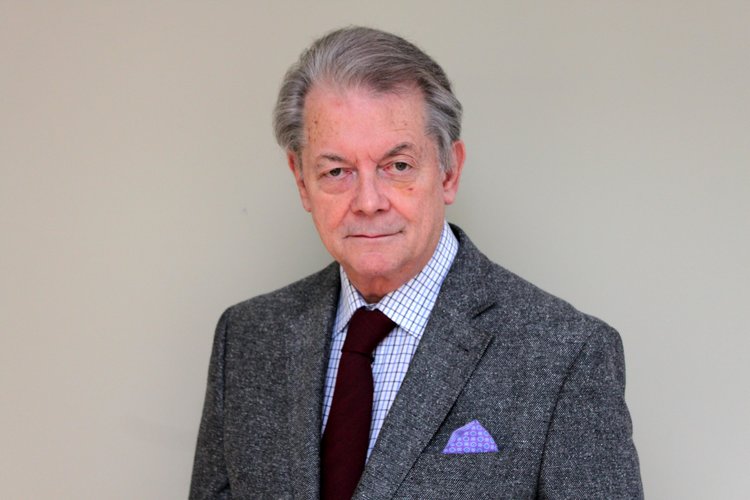
Brian Stewart
Brian Stewart was for over three decades a senior TV news reporter and foreign correspondent for the Canadian Broadcasting Corp (CBC)known for his coverage of crisis zones, including 10 wars, and for his award-winning political and historical documentaries. He interviewed numerous world leaders from Margaret Thatcher to Malcom Mandela and was also host of the current affairs shows, including CBC: Our World, as well as a Distinguished Senior Fellow at the Munk School of Global Affairs. Now retired, he still comments in media on world events.
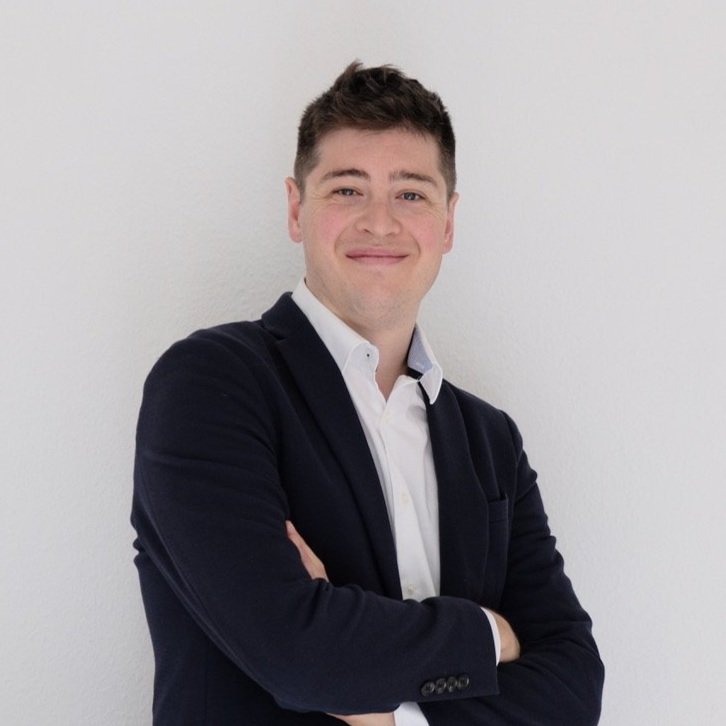
Jean-Michel Turcotte
Jean-Michel Turcotte is a historian at the Directorate of History and Heritage (DHH), Department of National Defence. Before moving to Ottawa, he completed a PhD in history at Université Laval in 2018, and thereafter, undertook postdoctoral fellowships in Berlin, Potsdam and Mainz in Germany. As a specialist of the Second World War and the Korean War, his research interests encompass the history of wartime captivity, humanitarianism, international humanitarian law and Canadian international and military history. His first monograph, Comment traiter les “Soldats d’Hitler”?, published in 2022 by Ottawa University Press, explores the detention of German prisoners of war in Canada, Britain and the United States during the Second World War. The book argues that the North Atlantic Allies conceived of detention policies as a subject of international as well as inter-allied politics. His research has been published in Diplomacy & Statecraft, Canadian Historical Review, International History Review, Intelligence and National Security, Humanity, Bulletin d’histoire politique and Relations Internationales. At the DHH, he is currently working on the official history of the Canadian mission in Indochina, from 1954 to 1973.
